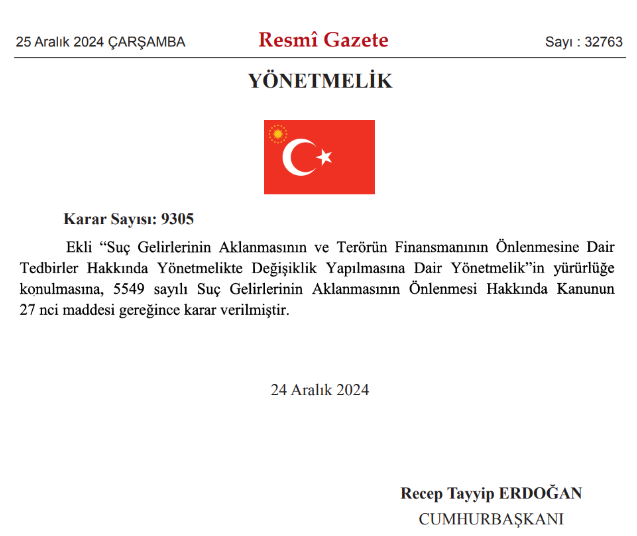Turkey is stepping up its game in the crypto world with new regulations wanted at tightening anti-money laundering measures.
Set to take effect on February 25, 2025, these rules will require crypto service providers to put the brakes on risky transactions if they don’t have enough information about their users.
A little overreaction?
In the final week of 2024, Turkey introduced these regulations, inspired by positive moves in major markets like Europe, and they want to check anyone making transactions over 15,000 Turkish lira, or about $425, will need to provide identifying information to their crypto service providers.

This is all part of an effort to prevent money laundering and terrorism financing through cryptocurrency. Interestingly, transactions below that threshold won’t require such scrutiny.
This new regulatory framework comes just as Europe prepares to roll out its own comprehensive crypto regulations with the Markets in Crypto-Assets bill, which kicks in on December 30.
Turkey’s move shows a growing interest in establishing clear guidelines for the burgeoning crypto market.
February 2025, the starting point
Once these regulations are in place, crypto service providers will also have to collect identifying information from customers using wallet addresses that haven’t been registered with them before.
If they can’t get the necessary info from a sender, they may classify the transaction as “risky” and decide to halt it altogether.
The new bill states that if sufficient information isn’t obtained, providers could limit transactions or even terminate business relationships.
Turkey’s crypto industry is booming
As of September 2023, Turkey was ranked as the fourth-largest crypto market globally, with an impressive trading volume of around $170 billion, even outpacing countries like Russia and Canada.
The past year has seen a surge in activity among Turkish crypto firms, with the Turkish Capital Markets Board receiving 47 license applications from crypto companies by August.
While individuals can buy and trade cryptocurrencies freely, using them for payments has been banned since 2021.
Interestingly, Turkey currently doesn’t tax crypto profits but is considering a small transaction tax of 0.03% to help boost its national budget.


